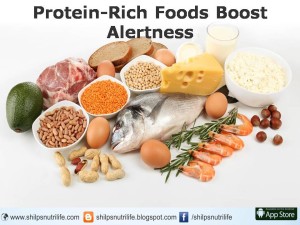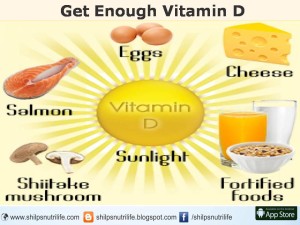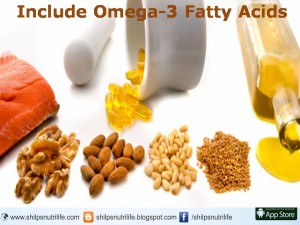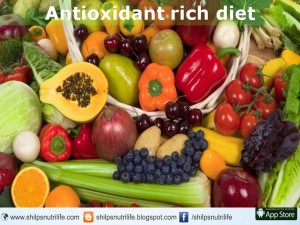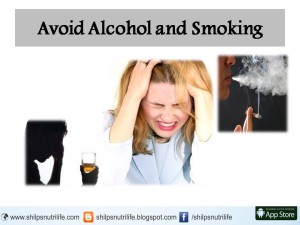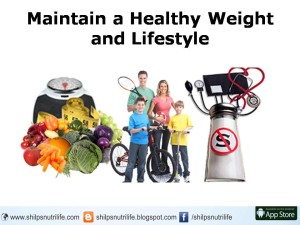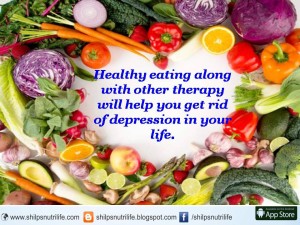World Health Day, celebrated on 7 April every year to mark the anniversary of the founding of WHO, provides us with a unique opportunity to mobilize action around a specific health topic of concern to people all over the world.
The theme of 2017 World Health Day campaign is Depression: Let’s talk
Depression affects people of all ages, from all walks of life, in all countries. It causes mental anguish and impacts on people’s ability to carry out even the simplest everyday tasks, with sometimes devastating consequences for relationships with family and friends and the ability to earn a living. At worst, depression can lead to suicide, now the second leading cause of death among 15-29-year olds.
Unfortunately, there’s no specific diet that’s been proven to relieve depression. Still, while certain eating plans or foods may not ease your symptoms or put you instantly in a better mood, a healthy diet may help as part of your overall treatment.
“Smart” Carbs Can Have a Calming Effect
Carbohydrates are linked to the mood-boosting brain chemical, serotonin. Experts aren’t sure, but carb cravings sometimes may be related to low serotonin activity.
Choose your carbs wisely. Limit sugary foods and opt for smart or “complex” carbs (such as whole grains) rather than simple carbs (such as cakes and cookies). Fruits, vegetables, and legumes also have healthy carbs and fiber.
Protein-Rich Foods Boost Alertness
Foods like turkey, tuna, and chicken have an amino acid called tryptophan, which may help you make serotonin. Try to eat something with protein several times a day, especially when you need to clear your mind and boost your energy.
Good sources of healthy proteins include beans and peas, lean beef, low-fat cheese, fish, milk, poultry, soy products, and yogurt.
Get Enough Vitamin D
Vitamin D receptors are located throughout the body, including your brain.
A 2010 national study found that the likelihood of having depression is higher in people with low levels of vitamin D. In another study, researchers from the University of Toronto noticed that people who had symptoms of depression, particularly those with seasonal affective disorder, tended to get better when the amount of vitamin D in their bodies went up as you’d expect it to during the spring and summer.
Researchers don’t know how much vitamin D is ideal, although too much can cause problems with calcium levels and how well your kidneys work.
Select Selenium-Rich Foods
Studies have reported a link between low selenium and poor moods. The recommended amount for selenium is 55 micrograms a day for adults.
Evidence isn’t clear that taking supplements can help. And it’s possible to get too much selenium. So it’s probably best to focus on foods:
- Beans and legumes
- Lean meat (lean pork and beef, skinless chicken and turkey)
- Low-fat dairy products
- Nuts and seeds (particularly brazil nuts – but no more than one or two a day because of their high selenium content)
- Seafood (oysters, clams, sardines, crab, saltwater fish, and freshwater fish)
- Whole grains (whole-grain pasta, brown rice, oatmeal, etc.)
Include Omega-3 Fatty Acids
Recently, scientists found that societies that don’t eat enough omega-3s may have higher rates of major depressive disorder. Other studies show that people who don’t often eat fish, a rich source of these fatty acids, are more likely to have depression.
Good sources of omega-3s, including alpha-linolenic acid, are:
- Fatty fish (anchovy, mackerel, salmon, sardines, shad, and tuna)
- Flaxseed
- Canola and soybean oils
- Nuts, especially walnuts
- Dark green, leafy vegetables
Antioxidant rich foods help
Eating foods rich in antioxidants prevent cell damage and also helps reduce risk factors per se for brain health.
Beta-carotene: apricots, broccoli, cantaloupe, carrots, collards, peaches, pumpkin, spinach, sweet potato
Vitamin C: blueberries, broccoli, grapefruit, kiwi, oranges, peppers, potatoes, strawberries, tomato
Vitamin E: margarine, nuts and seeds, vegetable oils, wheat germ
Avoid Alcohol, smoking and caffeine rich foods
Many people who are depressed also have problems with alcohol or drugs. Not only can they interfere with your mood, sleep, and motivation, they can also reduce the effectiveness of your depression medications.
Drinks and foods with caffeine can trigger anxiety and make it difficult to sleep at night. Cutting back or stopping caffeine after noon each day may help you get a better night’s sleep
Maintain a Healthy Weight and Lifestyle
People who are obese may be more likely to become depressed. And, according to several studies, people who are depressed are more likely to become obese. Researchers believe that may be the result of changes in your immune system and hormones that come with depression.
Fortunately, a nutritious diet including the foods above will help you get to and stay at a healthy weight. If you’re having a hard time, talk with your doctor.
Healthy eating alone won’t help you get rid of depression in your life but will help you respond well to it.









